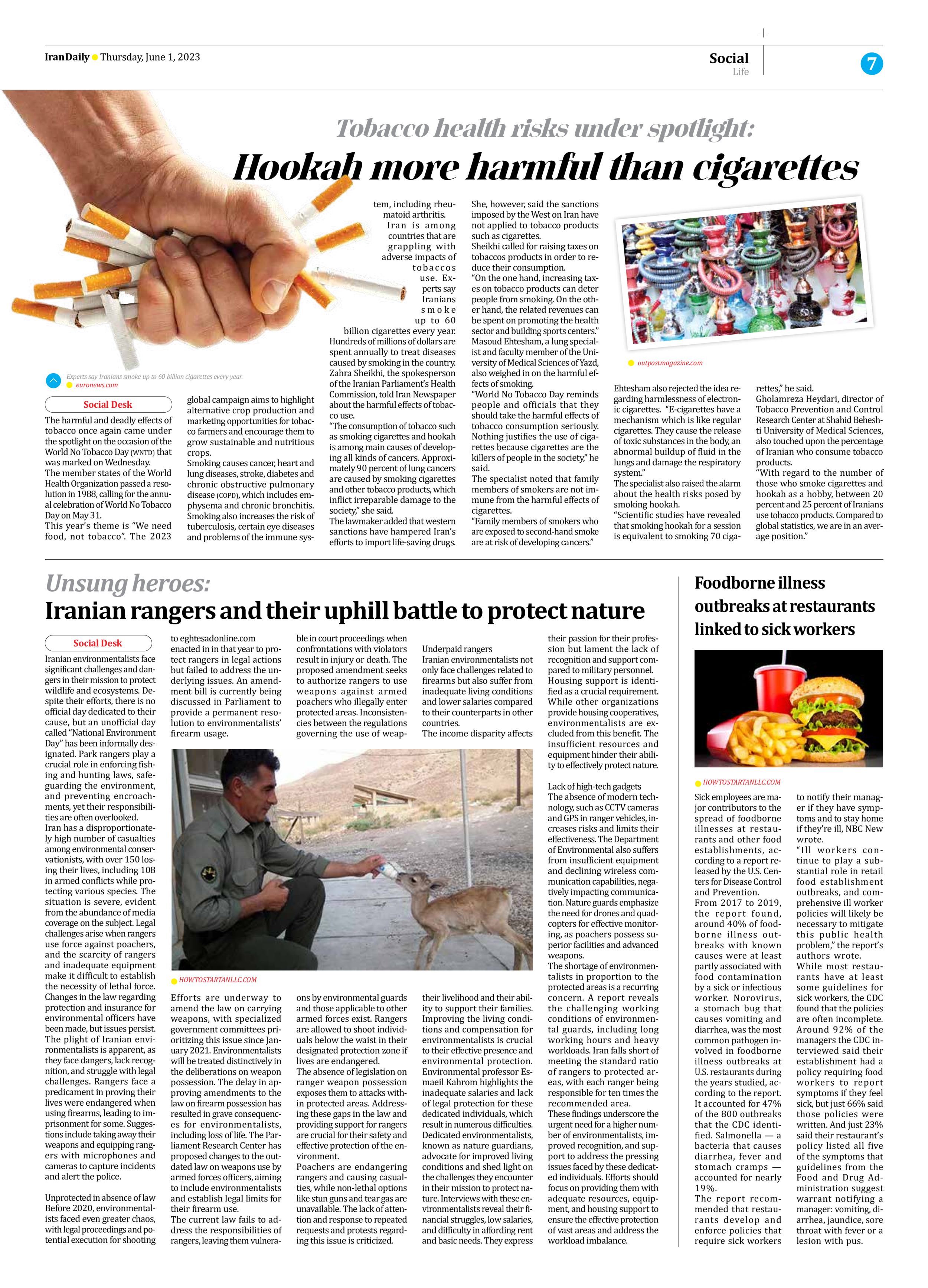
Unsung heroes:
Iranian rangers and their uphill battle to protect nature
Iranian environmentalists face significant challenges and dangers in their mission to protect wildlife and ecosystems. Despite their efforts, there is no official day dedicated to their cause, but an unofficial day called “National Environment Day” has been informally designated. Park rangers play a crucial role in enforcing fishing and hunting laws, safeguarding the environment, and preventing encroachments, yet their responsibilities are often overlooked.
Iran has a disproportionately high number of casualties among environmental conservationists, with over 150 losing their lives, including 108 in armed conflicts while protecting various species. The situation is severe, evident from the abundance of media coverage on the subject. Legal challenges arise when rangers use force against poachers, and the scarcity of rangers and inadequate equipment make it difficult to establish the necessity of lethal force. Changes in the law regarding protection and insurance for environmental officers have been made, but issues persist.
The plight of Iranian environmentalists is apparent, as they face dangers, lack recognition, and struggle with legal challenges. Rangers face a predicament in proving their lives were endangered when using firearms, leading to imprisonment for some. Suggestions include taking away their weapons and equipping rangers with microphones and cameras to capture incidents and alert the police.
Unprotected in absence of law
Before 2020, environmentalists faced even greater chaos, with legal proceedings and potential execution for shooting to eghtesadonline.com
enacted in in that year to protect rangers in legal actions but failed to address the underlying issues. An amendment bill is currently being discussed in Parliament to provide a permanent resolution to environmentalists’ firearm usage.
Efforts are underway to amend the law on carrying weapons, with specialized government committees prioritizing this issue since January 2021. Environmentalists will be treated distinctively in the deliberations on weapon possession. The delay in approving amendments to the law on firearm possession has resulted in grave consequences for environmentalists, including loss of life. The Parliament Research Center has proposed changes to the outdated law on weapons use by armed forces officers, aiming to include environmentalists and establish legal limits for their firearm use.
The current law fails to address the responsibilities of rangers, leaving them vulnerable in court proceedings when confrontations with violators result in injury or death. The proposed amendment seeks to authorize rangers to use weapons against armed poachers who illegally enter protected areas. Inconsistencies between the regulations governing the use of weapons by environmental guards and those applicable to other armed forces exist. Rangers are allowed to shoot individuals below the waist in their designated protection zone if lives are endangered.
The absence of legislation on ranger weapon possession exposes them to attacks within protected areas. Addressing these gaps in the law and providing support for rangers are crucial for their safety and effective protection of the environment.
Poachers are endangering rangers and causing casualties, while non-lethal options like stun guns and tear gas are unavailable. The lack of attention and response to repeated requests and protests regarding this issue is criticized.
Underpaid rangers
Iranian environmentalists not only face challenges related to firearms but also suffer from inadequate living conditions and lower salaries compared to their counterparts in other countries.
The income disparity affects their livelihood and their ability to support their families. Improving the living conditions and compensation for environmentalists is crucial to their effective presence and environmental protection. Environmental professor Esmaeil Kahrom highlights the inadequate salaries and lack of legal protection for these dedicated individuals, which result in numerous difficulties.
Dedicated environmentalists, known as nature guardians, advocate for improved living conditions and shed light on the challenges they encounter in their mission to protect nature. Interviews with these environmentalists reveal their financial struggles, low salaries, and difficulty in affording rent and basic needs. They express their passion for their profession but lament the lack of recognition and support compared to military personnel.
Housing support is identified as a crucial requirement. While other organizations provide housing cooperatives, environmentalists are excluded from this benefit. The insufficient resources and equipment hinder their ability to effectively protect nature.
Lack of high-tech gadgets
The absence of modern technology, such as CCTV cameras and GPS in ranger vehicles, increases risks and limits their effectiveness. The Department of Environmental also suffers from insufficient equipment and declining wireless communication capabilities, negatively impacting communication. Nature guards emphasize the need for drones and quadcopters for effective monitoring, as poachers possess superior facilities and advanced weapons.
The shortage of environmentalists in proportion to the protected areas is a recurring concern. A report reveals the challenging working conditions of environmental guards, including long working hours and heavy workloads. Iran falls short of meeting the standard ratio of rangers to protected areas, with each ranger being responsible for ten times the recommended area.
These findings underscore the urgent need for a higher number of environmentalists, improved recognition, and support to address the pressing issues faced by these dedicated individuals. Efforts should focus on providing them with adequate resources, equipment, and housing support to ensure the effective protection of vast areas and address the workload imbalance.







